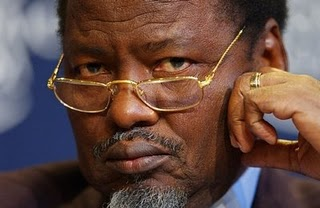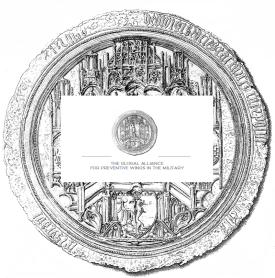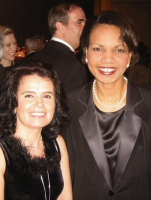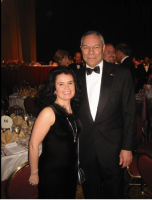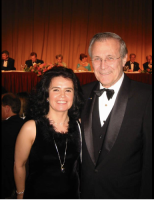Mozambique Transformation 1992-2000.
In 1992, Mozambique was the world’s poorest country, the last on the UN problem countries list, with the lowest GNP per capita and a huge foreign debt. It suffered a long bloody African civil war which claimed 600,000 lives and displaced two million people. The “Experts” predicted the conflict was so severe the country would never come back together.
- In 1992 President Chissano, his Cabinet and Chiefs of Staff of the military were approached by the scientists who presented them with the plan to use a unique, new OOTW (Operation Other Than War) that was proven in 40 field tests, and in Eastern Europe, to immediately decrease violence, crime rate, increase cooperation between the antagonists, and create fast economic growth. Chissano and the Cabinet studied the plan and research data diligently and rigorously. They made the unanimous decision to adopt it.
- In 1992 Mozambique created Preventive Wings in the Mozambique military and police forces.(a large TM and TM Sidhi group). The armed forces had 3,000 advanced TM Sidhi group and a 27,000 regular TM group, total 30,000. They did a time-coordinated daily four-hour program (two hours twice daily).
- In 1993 as statistically predicted, violence decreased dramatically. Crime rate dropped by 20% in two major Mozambique cities Maputo and Quelimane, the reverse of what is expected after the war. That year Mozambique had 19% economic growth.
- In 1994 the inflation dropped from 70% to 2%. From 1994 -1996 the economy had grown an average of 10% a year. After years of relying on donated food, Mozambique grew nearly enough to feed itself.
- In 1997 the economy was growing at 12,4% per year, the highest among all African nations. The inflation had plummeted. The country erased its massive foreign debt and had enjoyed the most stable currency values in Africa, It happened to discover the world’s largest deposits of titanium. The peace process stabilized, including free elections.
By the year 2000 Mozambique was the world’s fastest growing economy.
In 2007 President Joachim Chissano received the Inaugural Mo Ibrahim Award for Peace and Good Governance in Africa. The Mo Ibrahim Award is twice bigger than the Nobel Peace Prize.
Mozambique achievement gave rise the Ibrahim Index of African Governance (IIAG). The Unified Field Effect removes violence and improves all the social indicators in a country fast and simultaneously. Therefore since Chissano's success, no other leader has been able to achieve this scale of success. The method was buried, ridiculed, silenced, stopped. The IIAG has been modified after Chissano to match the regular status quo.
The Mo Ibrahim Award Press Release 2007 source: the Mo Ibrahim Foundation.
From President Joaquim Chissano’s address, 1993: (Courtesy the GAPWM Scientific Advisory Board)
"Support of Nature is with us. For what do we need this support of Nature, this coherence, this Unified Field? We want it to keep peace in the world.
We have been fighting for freedom and peace, and we want peace in order to develop our country and to develop the world.
We need the support of Nature to keep peace in the world.”
An astonished press began to report the changes. The New York Times, February 22, 1993, said:
“Mozambique has unexpectedly emerged as a candidate for an African success. story (…….). A ruthless drought (……) has been broken by quenching rains and the country is carpeted with corn. “We’ve got a combination of peace and rain, which there hasn’t been in Mozambique for a quarter of a century,” marveled Arthur M. Hussey III, coordinator of relief deliveries for CARE. “
In 1999 the New York Times wrote:
“Seven years after the guns fell silent, jackhammers are ringing, new hotels are rising, schools are opening, and newly paved roads are rolling across the land.
The war-torn, once ravaged countryside is now lush with corn, cashews and mangoes. Inflation has dropped to 2%, from 70% in 1994. The economy has grown an average of 10% a year since 1996. After years of relying on donated food, Mozambique now grows nearly enough to feed itself. Once a symbol of Africa's calamitous wars, Mozambique is now a success story."
(L.R. Swarns, The New York Times, December 3, 1999, A3
In perspective:
Joachim Alberto Chissano was the second President of Mozambique, serving from 1986 to 2005. He is credited with transforming the war- torn country of Mozambique into one of the most successful African democracies. He currently chairs the Joachim Chissano Foundation. Among many positions, he is an Eminent Member of the Sergio Vieira de Mello Foundation and a Member of the Club of Madrid. He is a member of the Advisory Board of Bill and Melinda Gates Foundation.
Sources: the GAPWM Scientific Advisory Board, The New York Times, The UK Independent, Wikipedia

